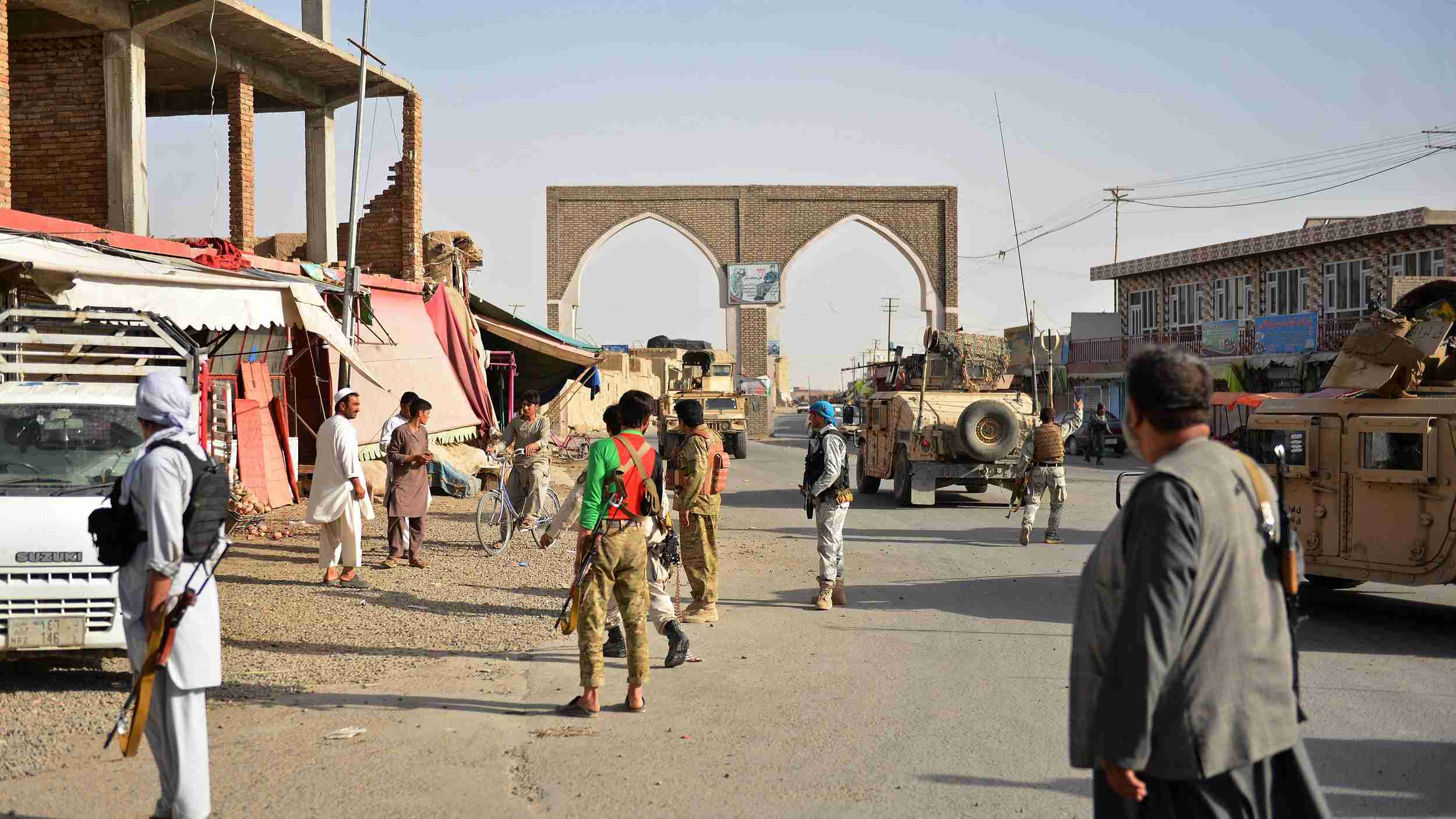About 330 people, including 30 civilians, have been killed during the intense fighting in Ghazni City, capital of eastern Ghazni Province since the clashes started in the embattled city early Friday, Afghan Defense Minister Gen. Tariq Shah Bahrami said Monday.
"As of midday today, the Afghan National Defense and Security Forces recaptured control of nearly all parts of Ghazni City, and the Taliban militants would be expelled from the city soon," Bahrami told reporters at a joint press briefing with Interior Minister Wais Ahmad Barmak.
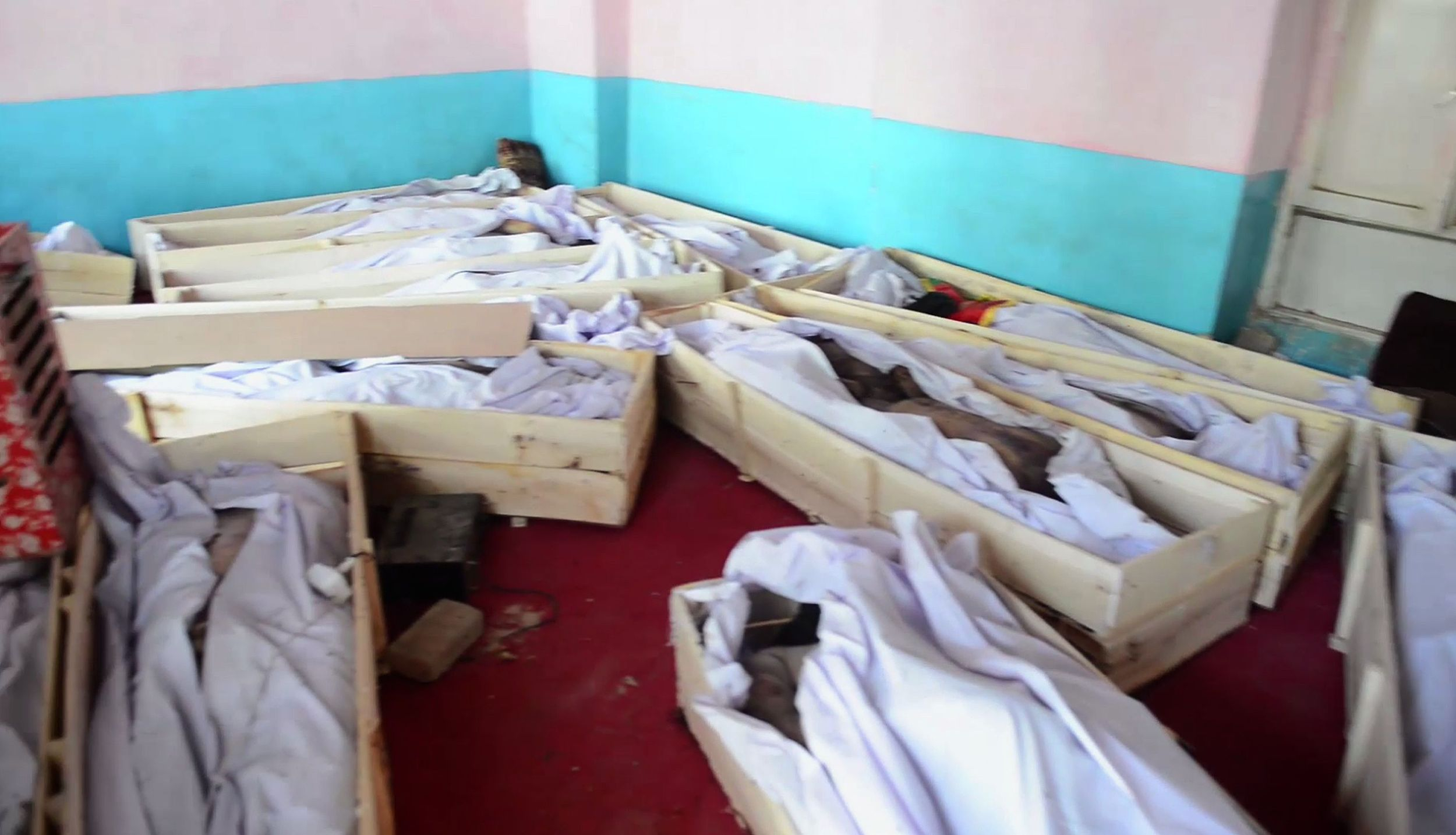
Dead bodies lie in coffins at Ghazni Provincial Hospital in the Afghan city of Ghazni, August 12, 2018. /AFP Photo
Dead bodies lie in coffins at Ghazni Provincial Hospital in the Afghan city of Ghazni, August 12, 2018. /AFP Photo
Bahrami added that up to 100 government security force members, 30 civilians, and over 194 Taliban militants were killed and 147 Taliban militants were injured during the four-day clashes between security forces and Taliban militants in Ghazni.
Within the past 24 hours, the Defense Ministry deployed reinforcement to Ghazni City and its adjacent areas, and the fresh troops will bring considerable changes into the security situation of the city in the next 24 hours, Bahrami noted.
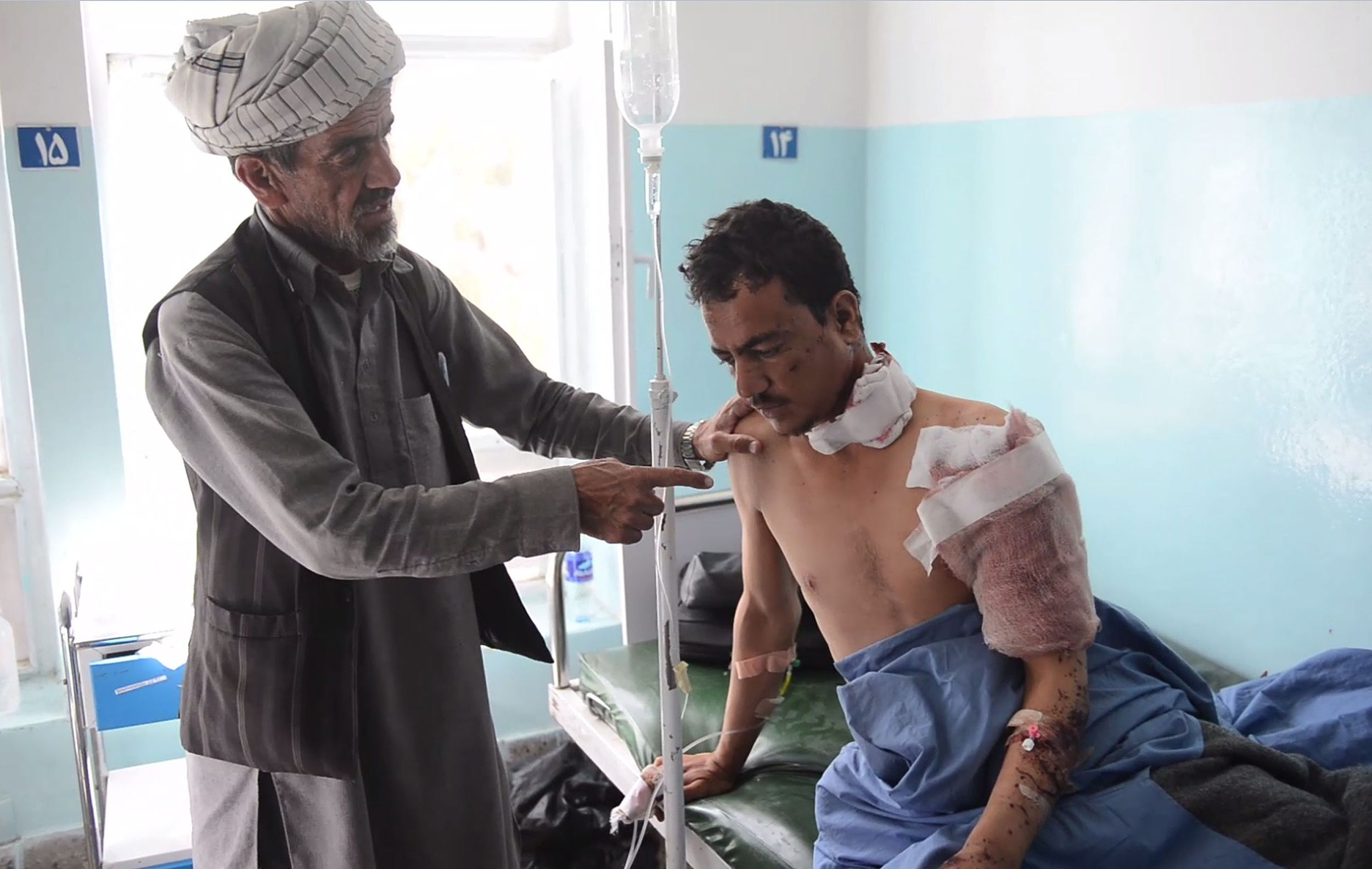
An injured man (R) receives medical treatment at Ghazni Provincial Hospital in the Afghan city of Ghazni, August 12, 2018. /AFP Photo
An injured man (R) receives medical treatment at Ghazni Provincial Hospital in the Afghan city of Ghazni, August 12, 2018. /AFP Photo
On wee hours of Friday, Taliban militants launched a massive attack on Ghazni City, 125km south of Kabul, in a coordinated effort to take back the city.
"The Afghan police and army will soon clear Ghazni City from the Taliban and normalcy and peace will return into the city as soon as possible," Interior Minister Wais Ahmad Barmak said.
The clashes blocked the main road connecting Kabul to southern and western provinces, and scores of travelers have been stranded on the road since early Friday.
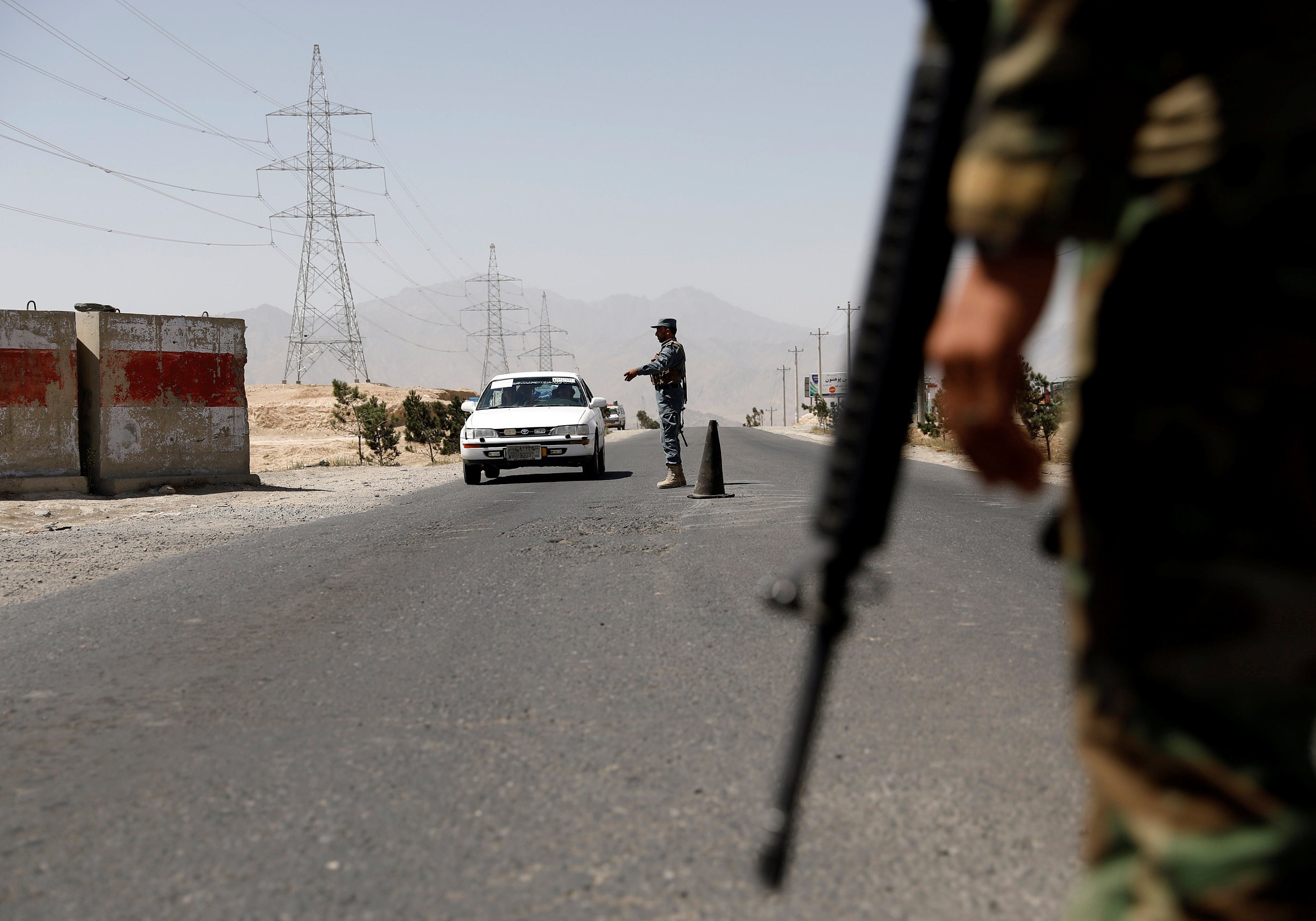
A checkpoint on the Ghazni highway in Maidan Shar, capital of Wardak Province, Afghanistan, August 12, 2018. /VCG Photo
A checkpoint on the Ghazni highway in Maidan Shar, capital of Wardak Province, Afghanistan, August 12, 2018. /VCG Photo
The Taliban also destroyed a telecommunications tower on the city’s outskirts, cutting off all landline and cell phone links to the city and making it difficult to confirm details of the fighting.
Afghan authorities have insisted that the city would not fall to the Taliban and that Afghan forces remained in control of key government positions and other institutions there.
Over the past few months, the insurgents have seized several districts across Afghanistan, staging near-daily attacks on Afghan security forces, but have been unable to capture and hold urban areas.
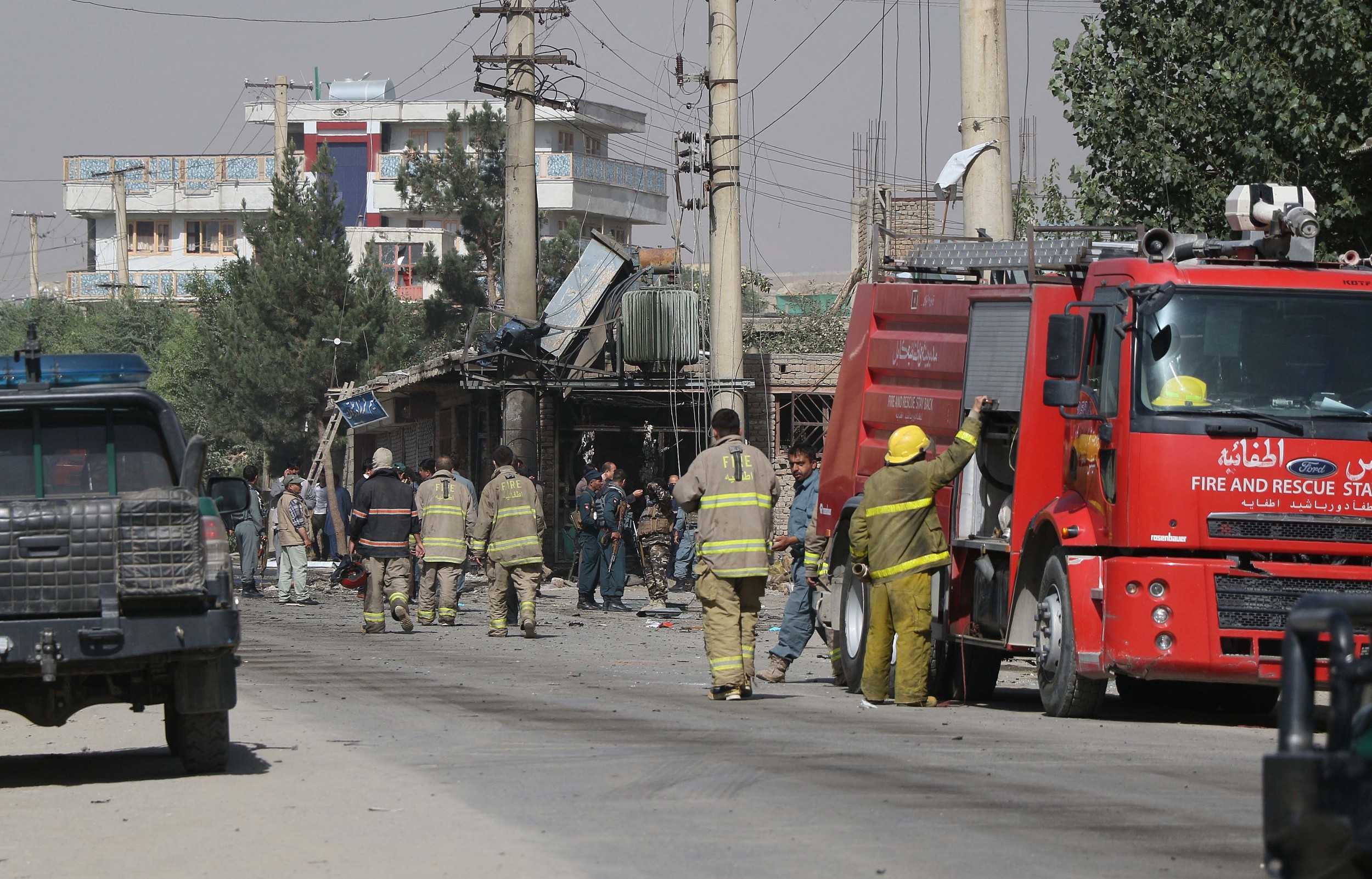
Afghan security officials inspect the explosion site that targeted security forces in Kabul, Afghanistan, July 26, 2018. /VCG Photo
Afghan security officials inspect the explosion site that targeted security forces in Kabul, Afghanistan, July 26, 2018. /VCG Photo
The United States and NATO formally concluded their combat mission in Afghanistan at the end of 2014, but have since then repeatedly come to the aid of Afghan forces as they struggle to combat the resurgent Taliban.
The United Nations has expressed its concerns for the civilians caught up in the fighting in Ghazni.
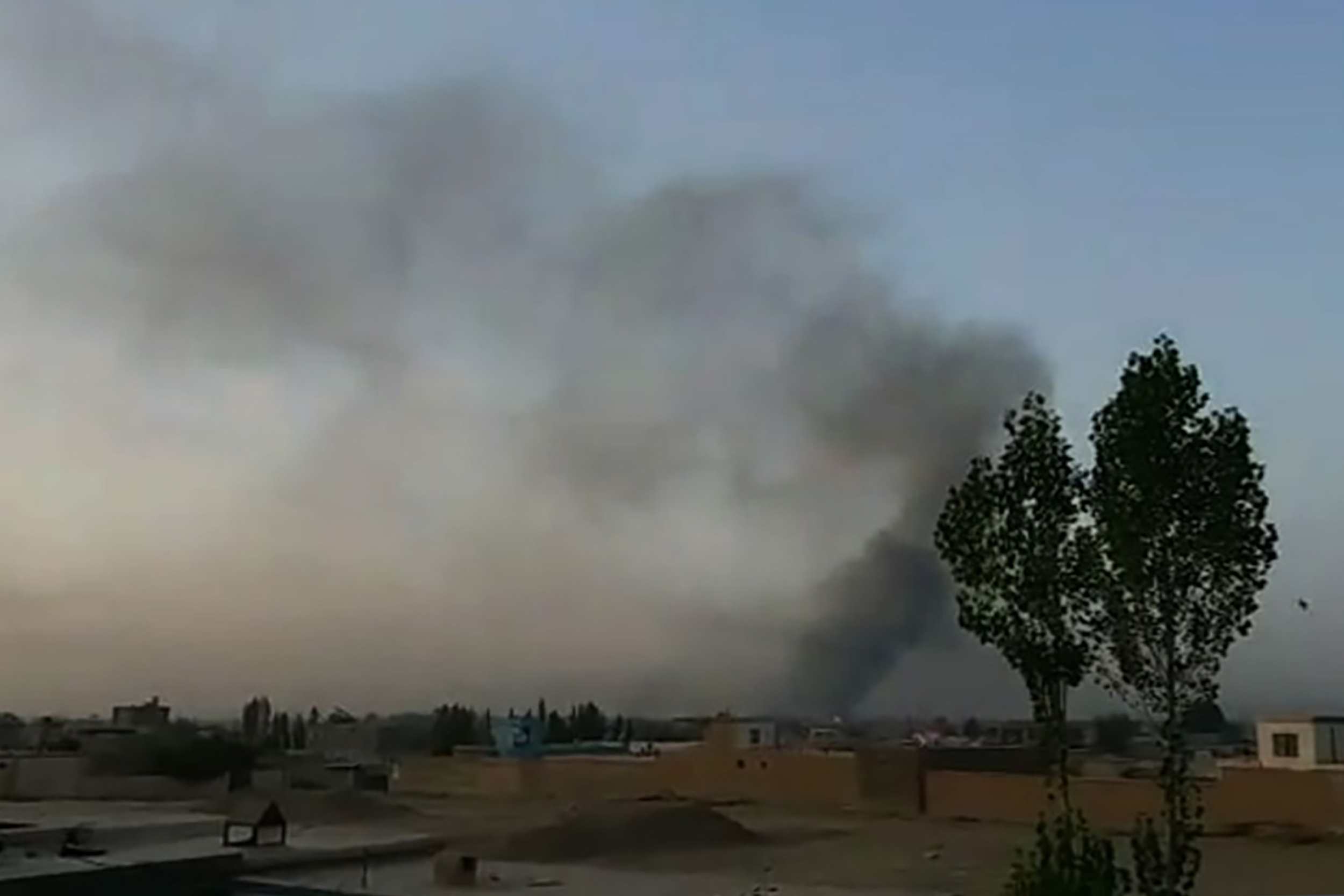
A moment after Taliban militants launched an attack on the Afghan provincial capital Ghazni, with terrified residents cowering in their homes amid explosions and gunfire, August 10, 2018. /AFP Photo
A moment after Taliban militants launched an attack on the Afghan provincial capital Ghazni, with terrified residents cowering in their homes amid explosions and gunfire, August 10, 2018. /AFP Photo
Ghazni’s residents “have seen their city turn into a battlefield since Friday morning, with fighting and clashes reportedly still ongoing. We have received initial reports of a number of civilian casualties and of people trying to reach safe areas outside of the city,” said Rik Peeperkorn, acting UN humanitarian coordinator for Afghanistan.
Ghazni’s hospitals are running out of medicines and people are unable to safely bring casualties, Peeperkorn’s statement added.
Electricity, water supply and food are also running low, the statement said.
Source(s): AP
,Xinhua News Agency

